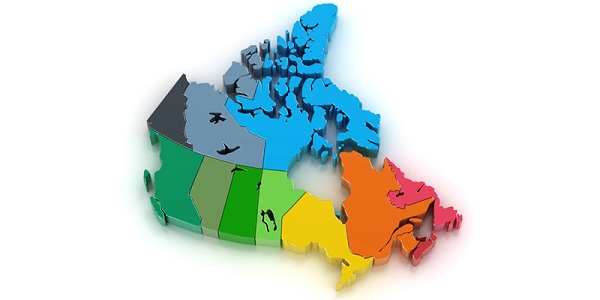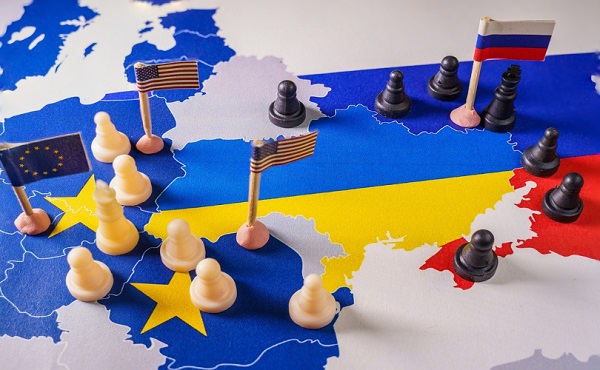News
Armed Robbery At East 40th Pub
By Sheldon Spackman
Red Deer Mounties are hoping you can help them identify two suspects in an armed robbery at the East 40th Pub on December 28th.
RCMP say two men entered the Pub on 40th Avenue at 2 am that morning. One was wielding a shotgun and the other held a screwdriver. The suspect holding the shotgun stood watch while the man with the screwdriver demanded cash. Police say he placed the money into a black bag he had brought with him and the two men left in a metallic brown Toyota Sienna that was driven by a third suspect.
There were a number of patrons in the pub at the time but no one was injured. The vehicle had been reported stolen on December 24th and was abandoned nearby. RCMP recovered it later the same day.
The first suspect is described as Caucasian, between 18 – 32 years old, approximately 5’8? – 5’10” tall and 150 – 170 lbs. He was last seen wearing a balaclava, sunglasses, ball cap, a blue hoodie, plaid fleece pants, grey work gloves and white running shoes with black soles. He was also carrying a shotgun.
The second suspect is described as Caucasian, between 18 – 32 years old, approximately 5’10” – 6? tall and 180-200 lbs. He was last seen wearing a balaclava, grey hoodie, dark grey pants with a white stripe down the leg, dark work gloves and dark running shoes with white soles. He was carrying a screwdriver.
If you have information about this incident, contact Red Deer RCMP at 403-343-5575. You can also call Crime Stoppers at 1-800-222-8477 or report it online at http://www.tipsoft.com/index.aspx
(Photo courtesy of Alberta RCMP)
Business
Broken ‘equalization’ program bad for all provinces

From the Fraser Institute
By Alex Whalen and Tegan Hill
Back in the summer at a meeting in Halifax, several provincial premiers discussed a lawsuit meant to force the federal government to make changes to Canada’s equalization program. The suit—filed by Newfoundland and Labrador and backed by British Columbia, Saskatchewan and Alberta—effectively argues that the current formula isn’t fair. But while the question of “fairness” can be subjective, its clear the equalization program is broken.
In theory, the program equalizes the ability of provinces to deliver reasonably comparable services at a reasonably comparable level of taxation. Any province’s ability to pay is based on its “fiscal capacity”—that is, its ability to raise revenue.
This year, equalization payments will total a projected $25.3 billion with all provinces except B.C., Alberta and Saskatchewan to receive some money. Whether due to higher incomes, higher employment or other factors, these three provinces have a greater ability to collect government revenue so they will not receive equalization.
However, contrary to the intent of the program, as recently as 2021, equalization program costs increased despite a decline in the fiscal capacity of oil-producing provinces such as Alberta, Saskatchewan, and Newfoundland and Labrador. In other words, the fiscal capacity gap among provinces was shrinking, yet recipient provinces still received a larger equalization payment.
Why? Because a “fixed-growth rule,” introduced by the Harper government in 2009, ensures that payments grow roughly in line with the economy—even if the gap between richer and poorer provinces shrinks. The result? Total equalization payments (before adjusting for inflation) increased by 19 per cent between 2015/16 and 2020/21 despite the gap in fiscal capacities between provinces shrinking during this time.
Moreover, the structure of the equalization program is also causing problems, even for recipient provinces, because it generates strong disincentives to natural resource development and the resulting economic growth because the program “claws back” equalization dollars when provinces raise revenue from natural resource development. Despite some changes to reduce this problem, one study estimated that a recipient province wishing to increase its natural resource revenues by a modest 10 per cent could face up to a 97 per cent claw back in equalization payments.
Put simply, provinces that generally do not receive equalization such as Alberta, B.C. and Saskatchewan have been punished for developing their resources, whereas recipient provinces such as Quebec and in the Maritimes have been rewarded for not developing theirs.
Finally, the current program design also encourages recipient provinces to maintain high personal and business income tax rates. While higher tax rates can reduce the incentive to work, invest and be productive, they also raise the national standard average tax rate, which is used in the equalization allocation formula. Therefore, provinces are incentivized to maintain high and economically damaging tax rates to maximize equalization payments.
Unless premiers push for reforms that will improve economic incentives and contain program costs, all provinces—recipient and non-recipient—will suffer the consequences.
Authors:
National
Liberals, NDP admit closed-door meetings took place in attempt to delay Canada’s next election

From LifeSiteNews
Pushing back the date would preserve the pensions of some of the MPs who could be voted out of office in October 2025.
Aides to the cabinet of Prime Minister Justin Trudeau confirmed that MPs from the Liberal and New Democratic Party (NDP) did indeed hold closed-door “briefings” to rewrite Canada’s elections laws so that they could push back the date of the next election.
The closed-door talks between the NDP and Liberals confirmed the aides included a revision that would guarantee some of its 28 MPs, including three of Trudeau’s cabinet members, would get a pension.
Allen Sutherland, who serves as the assistant cabinet secretary, testified before the House of Commons affairs committee that the changes to the Elections Act were discussed in the meetings.
“We attended a meeting where the substance of that proposal was discussed,” he said, adding that his “understanding is the briefing was primarily oral.”
According to Sutherland, as reported by Blacklock’s Reporter, it was only NDP and Liberal MPs who attended the secret meetings regarding changes to Canada’s Elections Act via Bill C-65, An Act to Amend the Canada Elections Act before the bill was introduced in March.
As reported by LifeSiteNews before, the Liberals were hoping to delay the 2025 federal election by a few days in what many see as a stunt to secure pensions for MPs who are projected to lose their seats. Approximately 80 MPs would qualify for pensions should they sit as MPs until at least October 27, 2025, which is the newly proposed election date. The election date is currently set for October 20, 2025.
Sutherland noted when asked by Conservative MP Luc Berthold that he recalled little from the meetings, but he did confirm he attended “two meetings of that kind.”
“Didn’t you find it unusual that a discussion about amending the Elections Act included only two political parties and excluded the others?” Berthold asked.
Sutherland responded, “It’s important to understand what my role was in those meetings which was simply to provide background information.”
Berthold then asked, “You nevertheless suggested amendments to the legislation including a change of dates?”
“My role was to provide information,” replied Sutherland, who added he could not provide the exact dates of the meetings.
MPs must serve at least six years to qualify for a pension that pays $77,900 a year. Should an election be called today, many MPs would fall short of reaching the six years, hence Bill C-65 was introduced by the Liberals and NDP.
The Liberals have claimed that pushing back the next election date is not over pensions but due to “trying to observe religious holidays,” as noted by Liberal MP Mark Gerretsen.
“Conservatives voted against this bill,” Berthold said, as they are “confident of winning re-election. We don’t need this change.”
Trudeau’s popularity is at a all-time low, but he has refused to step down as PM, call an early election, or even step aside as Liberal Party leader.
As for the amendments to elections laws, they come after months of polling in favour of the Conservative Party under the leadership of Pierre Poilievre.
A recent poll found that 70 percent of Canadians believe the country is “broken” as Trudeau focuses on less critical issues. Similarly, in January, most Canadians reported that they are worse off financially since Trudeau took office.
Additionally, a January poll showed that 46 percent of Canadians expressed a desire for the federal election to take place sooner rather than the latest mandated date in the fall of 2025.
-

 ESG2 days ago
ESG2 days agoCan’t afford Rent? Groceries for your kids? Trudeau says suck it up and pay the tax!
-

 John Stossel2 days ago
John Stossel2 days agoGreen Energy Needs Minerals, Yet America Blocks New Mines
-

 Daily Caller2 days ago
Daily Caller2 days agoLos Angeles Passes ‘Sanctuary City’ Ordinance In Wake Of Trump’s Deportation Plan
-

 Alberta2 days ago
Alberta2 days agoProvince considering new Red Deer River reservoir east of Red Deer
-

 Addictions2 days ago
Addictions2 days agoBC Addictions Expert Questions Ties Between Safer Supply Advocates and For-Profit Companies
-

 Aristotle Foundation2 days ago
Aristotle Foundation2 days agoToronto cancels history, again: The irony and injustice of renaming Yonge-Dundas Square to Sankofa Square
-

 conflict1 day ago
conflict1 day agoUS and UK authorize missile strikes into Russia, but are we really in danger of World War III?
-

 armed forces1 day ago
armed forces1 day agoJudge dismisses Canadian military personnel’s lawsuit against COVID shot mandate





